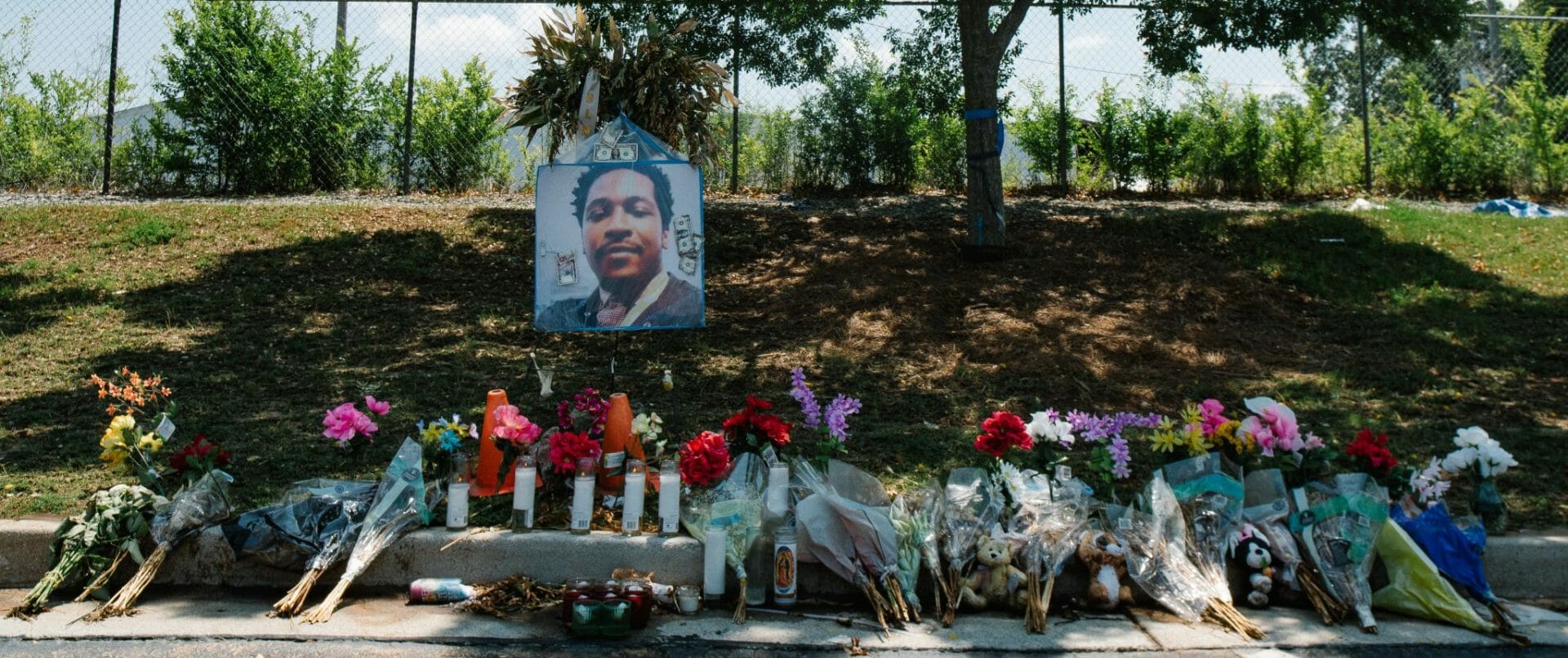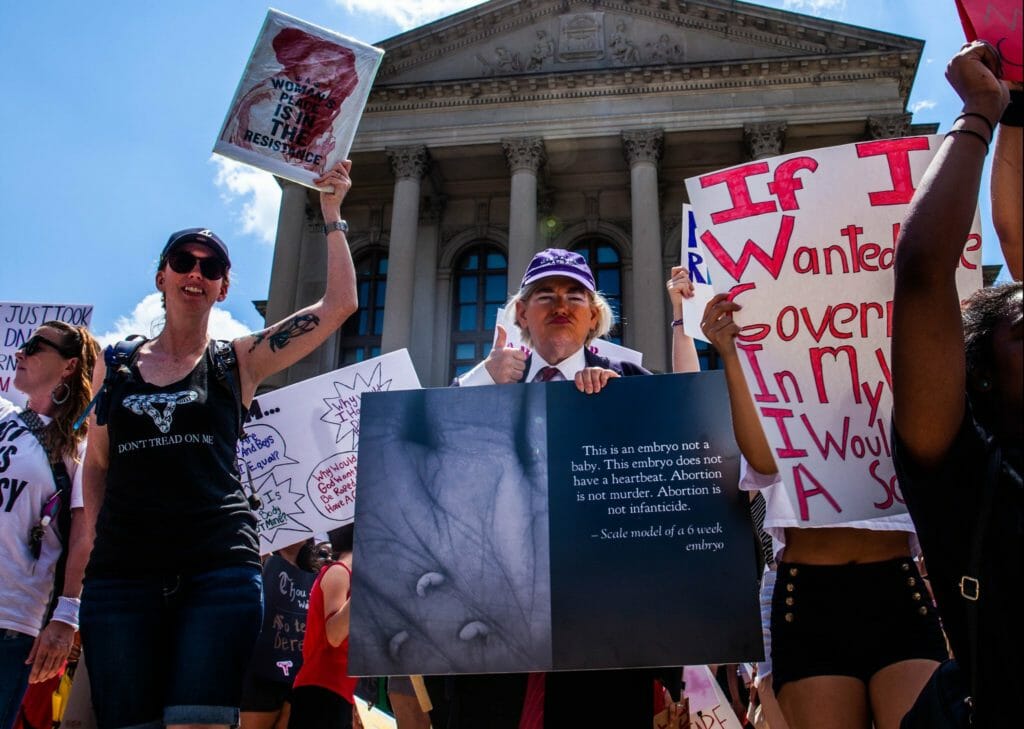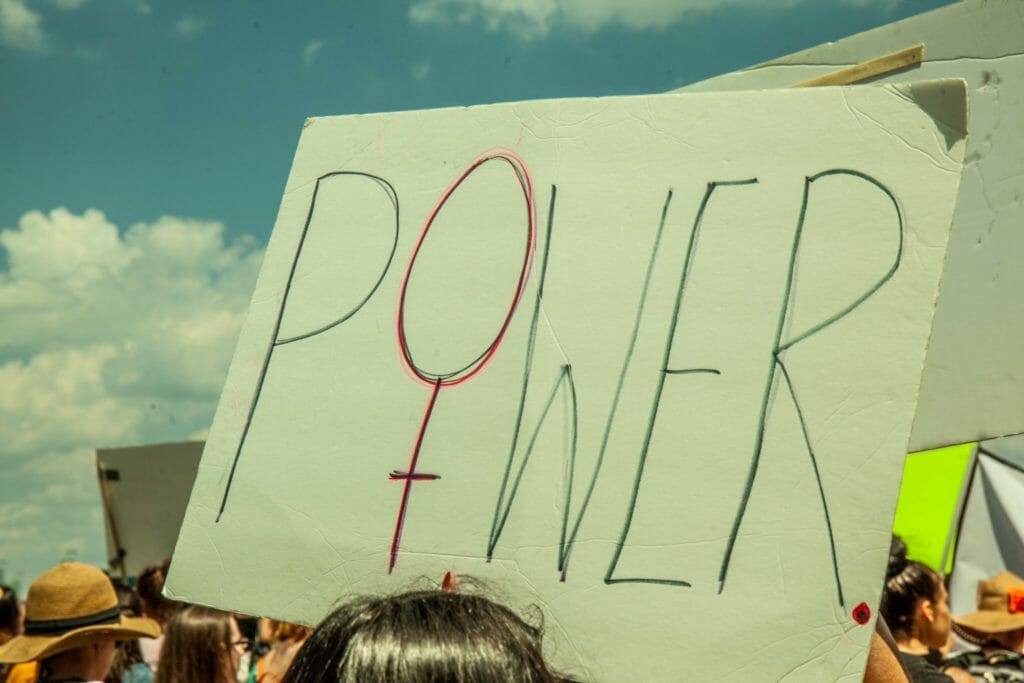After newly elected District Attorney attempted to recuse herself from the city’s most difficult cases, state attorney general denies request. Meanwhile, while countless other cases remain open in Fulton County.
[This article includes excerpts from the Feb. 4 press conference hosted by The People’s Uprising with Tomika Miller, Kimberly Jones, and Gerald Griggs regarding Brooks’ and other open police brutality cases in Atlanta. You can listen to the full press conference audio here.]
ATLANTA — Last month, newly elected Fulton County District Attorney Fani Willis sent a letter to Georgia Attorney General Chris Carr requesting she and her office be removed from multiple use of force cases in the metro Atlanta area. The cases include those of Rayshard Brooks and college students Messiah Young and Taniyah Pilgrim.
Willis became the county’s new district attorney following last year’s election, in which she ran against longtime incumbent Paul Howard and progressive challenger Christian Wise Smith. She defeated Howard in the December runoff with 71.9% of the vote and assumed office on Jan. 1, 2021. Willis received endorsements and funding from both the International Brotherhood of Police and former 2017 Republican mayoral candidate Mary Norwood.
Young and Pilgrim’s assault by police occurred on May 30, 2020, and involves six Atlanta police officers. On the second night of the city’s George Floyd protests and the city’s first night of curfew, Young and Pilgrim were heading home from dinner after receiving a notification that a curfew was in place. The citywide text message notification went out at 9:13 p.m. to alert residents of the 9 p.m. curfew.
[ Related: In Atlanta, inaction and silence stem from all branches of city government ]
Although Young and Pilgrim were not participating in the protest, officers slashed the car’s tires and smashed its windows before tasing Young and Pilgrim. Young was arrested and detained; he was also hospitalized due to injuries he endured in the assault. The incident was caught on live television via 11 Alive News. Then-police chief Erika Shields moved quickly to fire the police officers involved. Two of the police officers have since been reinstated on the Atlanta police force with eight months of back pay.
Willis also sought to remove herself from the Rayshard Brooks case, which sparked another wave of protests in the city on the heels of George Floyd’s murder by police in Minneapolis. Former Atlanta police officer Garrett Rolfe shot and killed 27-year-old Brooks in a Wendy’s parking lot in South Atlanta the night of June 12, 2020. Then-District Attorney Howard, who was seeking re-election at the time, swiftly brought down charges on Rolfe and accompanying officer Devin Brosnan. Rolfe was charged with felony murder and other charges, while Brosnan was charged with aggravated assault for kicking Brooks while he was on the ground after being shot.
In her letter to Carr, Willis argued that her office should not pursue the charges against the officers in both the Brooks and Young/Pilgrim cases due to Howard’s conduct in handling the cases at the time. According to a recent legal analysis reported on WABE, Willis cited a rule in Georgia law that applies specifically to prosecutors that states a prosecutor can not “use facts about the case, evidence in a case, or [their] opinion about the case to try and influence public opinion outside the courtroom.”
[ Related: Atlanta police shootings, 2018-present: A database ]
The news that Willis was seeking alternative prosecution for these cases arrived to Brooks’ widow, Tomika Miller, in news headlines rather than directly from the city’s new prosecutor who now assumes responsibility for the case. Miller was present at a press conference hosted by The People’s Uprising in South Atlanta on Feb. 4, to make a statement regarding Willis’ decision to recuse herself. The People’s Uprising was established in May 2020 to address injustices in the city and its executive board members include Atlanta city council member Antonio Brown, Rep. David Dreyer, Rep. Erica Thomas, Rep. Park Cannon, Dr. Rashad Richey, Commissioner Natalie Hall, Randy Hazelton, and Julius Thomas.
Brown, Dreyer, Cannon, and Thomas were present at the press conference alongside attorney and NAACP Atlanta Vice President Gerald Griggs and activist/organizer Kimberly Jones.
“We made a promise to the people when we stood in the streets and we marched,” said Jones. “When we made commercials together, when we wore uniforms on NBA floors, when we wrote books, when we made movies, when we formed task forces like this … we made a promise to the people. We made a promise we were writing a new contract where they were finally going to see justice. We made a promise to the people that we had awakened our eyes and we saw the wrongs and the ills and we were going to do right by them. We made that promise. They didn’t ask for us to be in leadership, we chose it. When we endorse candidates, we make promises to the people.”
Brown spoke at the press conference emphasizing the need for solidarity to address systemic issues in the city. Throughout last year, Brown introduced multiple pieces of legislation to the Atlanta City Council that were in one way or another struck down. Examples include the Rayshard Brooks Bill, which sought to reallocate $73 million of the city’s general fund into a trust to be distributed to community programs; Ordinance 20-O-1468, which sought to create new systems of accountability and transparency between the police and district attorney’s office; and a resolution to demilitarize the APD’s crowd control tactics on peaceful protesters.
“At some point, the city has to hold themselves accountable to what is transpiring,” Brown told me in a direct interview following the Feb. 4 press conference. “My issue with crime and everything that has been transpiring … is that this is not something new that just spurred out of the blue. This crime has been happening in low-income communities. These deaths have been happening in low-income communities. This is nothing new. What you see happening is generational poverty [that] goes unaddressed for decades; [these are] the side effects. It’s a spillover into other communities.”
Brown’s latest piece of legislation, Resolution 21-R-3006, seeks to establish a new Department of Public Safety and Wellness that he says will address the city’s historic issues of poverty in low-income communities. Atlanta held the largest wealth inequality gap in the country last year, aside from San Juan, Puerto Rico, according to new census data.
When asked his thoughts on Willis’ decision to try and remove herself from the Brooks case, Brown told me, “I’m disappointed. I knew that what we saw during the election was performance politics, at its best. So I knew already that she was not going to hold true to her word of taking on hard cases. I knew that.”
On Feb. 9, Carr wrote Willis back denying her request to remove her and her office from the Brooks and Young/Pilgrim cases.
“While your letter raises concerns regarding your predecessor in office, those concerns relate to that person,” Carr writes, referring to former district attorney Howard. “They do not relate to you and do not relate to the Office of the District Attorney of the Atlanta Judicial Circuit. While I understand the concerns that you have raised, those concerns relate to a potential violation of a rule of the State Bar of Georgia by your predecessor. Both appear fairly obviously to be matters that are personal to your predecessor in office and that do not pertain to you or your office. Therefore, from the concerns raised in your letter, it appears abundantly clear that your office is not disqualified from these cases by interest or relationship.”
I reached out to Griggs for his legal interpretation of the decision, as well as to inquire what this decision means for the cases and the families affected.
“The decision by Chris Carr means that Fani Willis will have to [try the] case or otherwise determine the course of the charges against the officers,” he told me in an email interview. “The victims hope this message from the attorney general will force Willis to do her job and keep the campaign promises she made to prosecute without fear or favor. The People’s Uprising stands with the family and wants justice for Rayshard Brooks, the Morehouse and Spelman students, and all the other police brutality cases in Fulton County.”
While Willis cited Howard’s flaws during his time as the county’s district attorney as substantial and legal reasoning for her removal from these high profile cases, it is not his record that appears to raise concern in communities. Rather, it is Willis’ record of endorsements that raises questions about where her favor lies. Just as Jones said organizations’ endorsements of candidates equate to promises to the people, the same can be said about political candidates in relation to who they receive their endorsements and funding from. This is especially true in police brutality cases wherein police organizations like the International Brotherhood of Police are considered to be a special interest group.
“It is common knowledge of the endorsements and people are concerned about the ramifications of such,” Griggs told me. “They are worried about the special interest groups having too much influence over the D.A.”
Carr’s decision came as a bit of a surprise, contradicting predictions from legal analysts and others following the case. Griggs, however, agrees with Carr’s decision in terms of the law.
[ Related: Georgia Republicans introduce new restrictive voting bills ]
“I think that Carr read the law correctly,” he said. “Any alleged professional ethics violations went with previous D.A. and no conflict exists in the D.A.’s office in handling Rayshard Brooks’ case based on my reading of the Professional Rules of Conduct and controlling case law.”
We have reached out to both Reps. Dreyer and Thomas to learn more about legislative action regarding the city’s police brutality in conjunction with these case decisions. We have yet to hear back as the Georgia General Assembly continues in its ongoing 40-day legislative session.
Today, representatives reviewed HB 286, sponsored by Rep. Houston Gaines, District 117. The new bill would “restrict the ability of county governing authorities to reduce funding for county police departments.” The legislative session will adjourn on April 2, 2021.
Attorneys working with Brooks’ family, Young, and Pilgrim are now calling for a special prosecutor in the case. While the Brooks and Young/Pilgrim’s cases remain in limbo, they join the lengthy log of police brutality cases that remain open and justice delayed in Fulton County.




